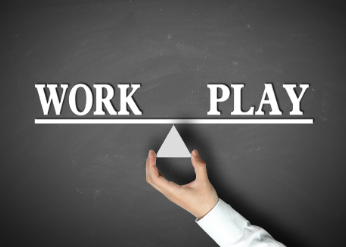
ChristianChan/Shutterstock
Over the last few years, there has been a collective attitude shift regarding work. Hustle culture has fallen by the wayside, and employees are setting boundaries for themselves and striving for better work-life balance. In addition to making more time for family, hobbies may also be making a resurgence.
Traditionally, as professionals fixate on career goals and ‘free time’ dwindles, hobbies are often abandoned. “As adults, we have been taught that our careers — that the one thing that we’re paid to do — is the priority,” said Karen McFarlane Holman, Ph.D. in a TEDx talk entitled The Remarkable Impact of Hobbies on Career. “And if we want to keep doing any of our other interests, those get categorized as hobby or leisure activity that we do in our spare time — if we have the spare time.”
Academia can feel like a race — to achieve tenure, obtain a leadership role, receive a grant or award, earn a certain status. Devoting all our time and resources toward career success, we deny ourselves time for enjoyable outside activities. It might seem counterintuitive, but this hyperfocus can work against our career success. Studies show that engaging in these activities can actually boost performance at work, so not only are you giving up on something you enjoy — you’re missing out on the many ways that hobbies can infuse new life, energy, and creativity into your work.
Here are a few arguments for continuing to nurture your hobbies and interests, which benefit (not impede) your career.
Restoration and Rejuvenation
“Hobbies and activities outside of work are particularly important for people in higher education due to the nature of their profession,” said Dr. Elizabeth Campbell, known as Dr. Bethy, a licensed psychologist and tenured full professor at Whitworth University. “Working in higher education can be demanding and all-consuming, with long hours and intense intellectual engagement. Engaging in hobbies outside of work provides a much-needed break from the academic world, allowing individuals to recharge, relax, and find fulfillment in non-work-related pursuits.”
Whether your hobby is exercising, baking, woodworking, quilting, or making music, disconnecting from your academic career can restore some of your energy so that you can come back to work ready to focus and maximize productivity.
Improved Mental Health
The enjoyment that comes with engaging in our hobbies can also reduce stress and burnout, which is all too common in higher education. Burnout has repercussions for individuals and their institutions alike — mental and physical health concerns for the former and lost productivity, turnover, and time and money spent training new staff for the latter. Engaging in hobbies and activities we enjoy helps us disconnect from the rigor and stressors of our professions and boosts our mindsets. Improved mental and emotional well-being can ultimately help us be more present at work, perform better, and show up fully for our students.
Creativity and Skill Development
In her TEDx talk, Holman discusses a 2020 study that found hobbies can actually enhance your career. “Above average time spent on leisure activities positively impacted people’s careers,” she said. “Now, there is a caveat. They found this to be true of activities that were high in seriousness and different from a person’s career.”
In other words, hobbies aren’t just ‘idle time’ in opposition to your career. Hobbies that are goal-oriented, have risk involved, and are different than our line of work promote problem-solving skills and innovative thinking and can give us fresh perspectives — all of which are important when working on a college campus.
“Hobbies can also provide opportunities for skill development and learning, which can be transferred to professional settings, such as improved communication or organizational abilities,” Dr. Bethy said.
Added Character
Credentials and status matter in academia. There is no denying that. However, those things may not be the answer to connecting with your co-workers better or setting yourself apart from competitors in a job search. Hobbies and outside interests could be, though.
“Aside from the mental and physical health benefits of engaging in a hobby or two, having interests outside of work makes you a more interesting person,” said Karen Southall Watts, who is an instructor at Bellingham Technical College and Alamance Community College. “When you’ve got something to talk about besides your day-to-day job, you become a more effective networker, public speaker, and — if necessary — job candidate. People are drawn to variety and novelty.”
Additionally, connecting with your colleagues or a prospective employer can be easier when you have shared hobbies and interests.
Remember
Chasing your career goals doesn’t mean you have to leave your hobbies and side gigs behind. In fact, you’re better off not to.
“Having a well-rounded life with fulfilling hobbies promotes work-life balance, reducing burnout and increasing overall job satisfaction, leading to greater productivity and effectiveness in our roles within higher education,” said Dr. Bethy.
So, go on… Happy baking, singing, knitting, sculpting, [insert hobby name here]!

